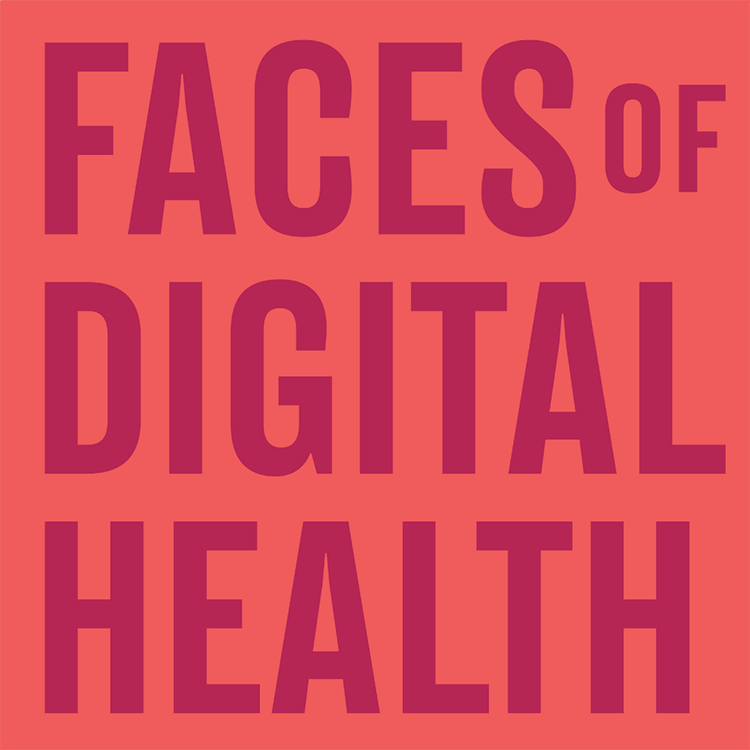
Faces of Digital Health
A podcast about digital health and how healthcare systems adopt technologies.
It’s time for AI credibility scores (John Halamka, President of Mayo Clinic Platform)
John Halamka is the President of the Mayo Clinic Platform and a leading expert in digital health and AI. He has traveled to 21 countries, helping to scale digital health solutions and address regulatory and ethical challenges in the reuse of healthcare data.
Addressed topics in this discussion:
1. Differences in regulatory frameworks and cultural expectations across countries.
2. Comparison of the U.S. and European approaches to AI and data exchange.
3. Risks associated with generative AI and the need for a credibility scores.
4. Observations from various countries on AI adoption. Importance of local tuning for algorithm validation.
5. Data Standards and Future Trends.
6. Advice for Governments and Healthcare Institutions: Encouraging a proactive approach to AI adoption -Starting with low-risk projects and building trust and reliability.
Website: www.facesofdigitalhealth.com
Newsletter: https://fodh.substack.com/
Youtube: https://www.youtube.com/watch?v=tH9qYpFW-W8
July 24, 2024
Would you Pay $2500 for a Preventative MRI Scan?
You may not have heard about Prenuvo, but you probably know Kim Kardashian. Or perhaps you know about Prenuvo because of Kim Kardashian.
Prenuvo offers whole-body MRI scans for $2500. About 3-4% of people get something discovered, 10% have detected changes that require follow-ups.
Opinions about the usefulness of these scans are diverse, with some hesitation on the clinical side.
At HLTH Europe, the CEO Andrew Lacy explained:
🤔 How Prenuvo uses influencer marketing to attract new customers,
🤔 whole-body MRI scans in light of other preventive whole-body scans and the emerging field of liquid biopsies,
🤔 affordability/ scans as a status symbol,
🤔 the future of prevention,
... and more.
www.facesofdigitalhealth.com
Newsletter: fodh.substack.com
July 15, 2024
HLTH Europe 2024: AI, Patients, Women’s health, and more
If you ever want to go to a healthcare innovation conference that doesn’t shy away from potentially controversive topics, HLTH is your place to go. In June 2024, the conference, which attracts 12,000 people in the US, came to Europe. At the center of the exhibition hall stood the Heart Stage focused on topics related to women’s health. Around it were the exhibitor booth and other stages, each designed with a different theme, each like a theatre setup that made speakers feel like stars. Why do people love going to HLTH? Because it’s focused on the experience of the attendees in “a little extra” way. The ticket includes meals, music, there were massage and hair salon in the middle of the exhibition floor, lots of evening networking events, from more formal but still unusual ones, such as the Phillips reception in a museum, to the closing evening with a concert by The Libertines. When the experience is good, and festival-live, it attracts people. When people come, you very quicky attract VIPs of the industry, who many hope to meet and do business with. Win win. In this episode, you will hear impressions and insights from speakers and attendees of the event. You will hear about: partnerships and investment in Europe, women’s health, the German market, what companies don’t understand about patient engagement, and AI.
Speakers:
John Halamka, President of Mayo Clinic Platform,
Sara Schmachtenberg, Digital Health Venture Expert / Head of Data and Analytics, Europe & USA at Galen Growth,
Simon Phillip Rost, the Chief Marketing Officer at GE Healthcare,
Jen Horonjeff, PhD, Founder and CEO of Savvy Cooperative, and Ronnie Sharpe, co-founder and COO at Savvy Cooperative,
Christophe Jauquet, Author & Professional Keynote Speaker on how business & technology shape a healthier, happier, more sustainable future.
Dorothée Marie-Louise Doepfer, Deputy Head of Digital Labs / Program Management Digital Health Accelerator & Community Building & Co-organizer Berlin Institute of Health at Charité.
www.facesofdigitalhealth.com
Newsletter: fodh.substack.com
June 24, 2024
Women’s Health: What it is, how it’s funded and what changes do we need? (Joy Rios)
Debates around equity and equality, especially concerning men and women and female representation, can become heated and divisive quickly.
For a long time, female bodies have been perceived merely as male bodies with different reproductive organs. However, the differences go beyond that: 80% of people with autoimmune conditions are women, 66% of Alzheimer's disease patients are women, and symptoms of cardiovascular diseases present differently in women and men, among other disparities. These health issues significantly impact women's productivity.
In today's episode, you will hear a recording from the Healthcare Business Women Ljubljana meetup focused on women's health.
Joy Rios, founder of HIT Like a Girl Media joined the discussion on women's health and how the unique aspects of women's health are impacting digital health companies and businesses. While less than a quarter of CEOs in digital health companies are women, in femtech companies, 76% of founders, co-founders, and CEOs are women.
Website: www.facesofdigitalhealth.com
Newsletter: https://fodh.substack.com/
Show notes:
[00:02:00] Guest Speaker: Joy Rios
[00:03:00] Current State of Women's Health
Common associations with women's health: menstrual health apps (Clue), pelvic floor training (Elvie), sexual health (Rosy).
Innovations in women’s health: apps for sexual assault victims, and addressing menopause and ovarian health.
[00:04:00] Research and Development
Only 4% of R&D budgets historically went into women's health topics.
Inclusion of women in clinical trials has improved, but gaps remain in medical device trials.
[00:05:00] Challenges and Biases
[00:06:00] Policy and Investment
White House initiative and Melinda French Gates’ $2 billion investment in removing barriers for women.
[00:16:00] Impact of Abortion Rights on Women's Health
Roe v. Wade overturned, affecting access to abortion and impacting startups in the field.
Differences in state laws create challenges in providing consistent healthcare.
[00:22:00] Inspiring Developments
Policy changes in Mexico leading to increased female representation in politics.
Mexico’s progressive stance on women in leadership positions.
[00:26:00] Advice for Women in Healthcare Business
Identify unique opportunities and unmet needs in healthcare.
Understand regulations and compliance.
Build a supportive community and collaborate.
June 17, 2024
HIMSS Europe 2024: EHDS, future of interoperability, next steps in AI, and where patient journey fits in?
Rome was buzzing with digital health at the end of May as the HIMSS Europe conference took place at La Nuova Congress Center. Delegates from 80 countries and representatives of health ministries of 20 countries marked the event with discussions about the implementation of EHDS, the EU AI Act, and more.
In this episode, a few participants share their impressions from the discussions at the conference and the current state of healthcare digitalization in Europe.
You will hear from:
Jordi Piera-Jiménez. Director of the Digital Health Strategy Office, Catalan Health Service, who shared his view and experience on data management and data standards,
Rachel Dunscombe , CEO of openEHR foundation and former the UK AI council member leading on AI in digital health and care, who presented the discussions on AI,
Svava María Atladóttir, Executive Director of Development, Landspítali National University Hospital Iceland, about what it takes to build a new hospital which is what she needs to do by 2030,
Nana Odom, Director of Clinical Engineering at the Cleveland Clinic in London, who shared her advice for clinical engineers,
Diana van Stijn, Chief Medical Officer and co-founder of Lapsi Health and resident of Pediatrics at UMC Amsterdam, who talked about the doctor’s perspective on the use of tech and upskilling,
Luke Evason, Consultant and Monica Kleiijn Evason, Leadership Coach and Book Author, who both talked about the patient perspective on gaps in healthcare, particulary at the transfer of children going from pediatric to adult care.
Data quality is key for quality AI, another big topic globally, with regulation outlined in Europe with the EU AI Act. Where are discussions in healthcare? The EU AI Act is here, and discussions now resolve around implementation and technical questions.
The potential of data is huge… if the data is of good quality. This doesn’t only refer to clinical notes doctors input in electronic health records, but also how other data from devices, laboratories and more flows into EHR. Oftentimes, hospitals still battle with lack of interoperability and manual transcriptions between systems or from devices for vital signs, infusions pumps, etc. to clinical systems. This creates opportunities for errors. Hospitals that have all the systems connected, need to be mindful of other challenges. Cybersecurity went well beyond teaching employees to spot phishing email. Now, third party devices can pose a cybersecurity risk, creating a whole new set of challenges and requirements.
Care delivery is there for patients. Various topics were addressed at HIMSS about patients - from digital health literacy, concerns and hopes around the European health data space, there was an interoperability showcase on the showfloor which demonstrated the benefits of the European Patient Summary when patients travel abroad, of the impact of cross-border health that gives clinicians in regions outside patient’s residence valuable information about their health state. Many things are still missing though. One of them being improved patient journey, especially at the transit from pediatric to adult care.
Newsletter: https://fodh.substack.com/
www.facesofdigitalhealth.com
June 2, 2024
Can We Harmonize Medication Management Across Europe?
According to WHO, the global cost associated with medication errors is 42 billion US dollars. Errors can happen at the point of prescribing, transcribing from one system to the other, or administration, when the wrong patient is given either the wrong drug or the wrong dose. Medication administration errors can be prevented with the introduction of closed-loop medication management, where all points of medication handling are connected and done electronically; even medication administration is done with the help of barcode scanning of the patient barcode and medication barcode. Three European specialists from the Netherlands, UK, and Belgium recently started a European project, Asclepius, which advocated for the introduction of closed-loop medication management systems in the hospitals. They connected with colleagues from UK, France, Iceland, Belgium, Norway, Netherlands, Sweden to strive for alignment on the European level. So in today’s discussion, you will hear from Patrick van Oirschot, Patrick Koch and Francine de Stoppelaar talk about the need for improved medication safety.
www.facesofdigitalhealth.com
Newsletter: https://fodh.substack.com/
Show notes:
Main Discussion:
[00:01:00] Medication administration errors can be prevented with the introduction of closed-loop medication management, where all points of medication handling are connected electronically.
Guest Introductions:
[00:04:00] Patrick van Oswalt ("Pat"), a veteran in hospital pharmacy with a focus on digitalization and closed-loop medication management strategies.
[00:05:00] Francine de Stoppelaer, a clinical pharmacist with a 25-year career in healthcare leadership, notably involved in building and operating the Cleveland Clinic London.
[00:06:00] Patrick, with a background in medical imaging and pharmacy automation, emphasizes the need for digital transformation in hospital pharmacies.
Challenges and Solutions:
[00:08:00] Discussion on medication safety across Europe, highlighting the significant number of medication errors and associated costs. Specific examples include 19,000 deaths per year in Germany due to medication errors.
[00:10:00] Explanation of closed-loop medication management and barcode scanning at the bedside to ensure the right medication reaches the right patient.
[00:14:00] Different approaches to medication management in various countries, focusing on the importance of digital and automated processes.
Implementation Strategies:
[00:16:00] Discussion on where hospitals should start when considering digital transformation for medication safety, highlighting the importance of electronic prescribing and bedside scanning.
[00:18:00] The experience of implementing a fully digital hospital at Cleveland Clinic London, including workforce planning and gaining buy-in from healthcare professionals.
Project Overview:
[00:20:00] Introduction to the Asclepius project and its goals to harmonize medication management workflows across Europe.
[00:22:00] Highlighting the need for standardization in medication databases and the varying approaches to medication management across different countries.
Impact and Future Directions:
[00:24:00] The potential impact of digital and automated medication management on patient safety, efficiency, and sustainability.
[00:26:00] Encouraging adoption of best practices and the importance of measuring and monetizing the benefits of closed-loop systems.
[00:28:00] Challenges in convincing decision-makers and ensuring effective implementation amidst existing workloads.
May 22, 2024
Learning From pan-Canadian Health Data Strategy – What’s Next to EHDS? (Eric Sutherland)
The European Health Data Space is around the corner. The legislation is confirmed. How do we get to the next steps? Today you will hear a discussion with Eric Sutherland, Senior Health Economist and Digital Health Lead at OECD, who worked on the pan-Canadian health data strategy before his current role. We discussed the upcoming implementation of the European Health Data Space, what needs to happen next, how do we involve the public, encourage trust in data sharing, and also build capacity for digital health implementation. We are moving into the era of new required data professionals, not just data analysts, but also data controllers, data stewards and more.
www.facesofdigitalhealth.com
Newsletter: https://fodh.substack.com/
Show notes:
[00:02:00] - Eric Sutherland's background and transition from Canada to OECD
[00:04:00] - Challenges and solutions in Canadian health data strategy, emphasizing the need for data stewardship and public engagement
[00:06:00] - Importance of data interoperability and policy compatibility across regions
[00:08:00] - Goals of Canadian health data strategy and its impact, focusing on improving healthcare delivery through better data utilization.
[00:10:00] - Governance and collective impact in Canadian healthcare
[00:12:00] - European health data space and public engagement
[00:14:00] - Opt-out provisions and public interest in European health data space
[00:16:00] - Setting standards and policy compatibility in Europe
[00:18:00] - Learning from historical approaches in healthcare data strategies
[00:20:00] - Digital health literacy and public engagement
[00:22:00] - Simplifying communication in digital health
[00:24:00] - Role of patient leaders and public deliberation in health policy
[00:26:00] - Public expectations on health data usage
[00:28:00] - Economics of digital health and ROI
[00:30:00] - Utilizing health data for policy and research
[00:32:00] - Interoperability and investment in digital health infrastructure
[00:34:00] - Shifting towards a prevention-based health system
[00:36:00] - Workforce and capacity building in digital health
[00:38:00] - Automation and the future of health workforce
May 7, 2024
Switzerland, AI and Liquid Biopsies
AI and predictive modeling to understand an individual’s immune system function and predict treatment response are still in very early stages. We dream about precision medicine and getting every answer we can for ourselves when we get sick. However, if we look at genomics, only about 20 percent of human coding genes are well-studied. The remaining 80 percent (about 16,000 genes, along with the proteins they make) are largely a mystery.
In this episode, you will hear more about the field of immuno-oncology, understand the correlation between tumor development and immune system response, and trends in cancer detection and prevention, especially liquid biopsies - tests for detecting tumors in blood samples.
Speaker: Brian Hashemi - Executive Chairman and CEO of Novigenix - a Swiss-based biotech company using AI and RNA sequence analysis to capture the cancer immunity cycle during the multi-stage disease progression and response to therapy.
www.facesofdigitalhealth.com
https://fodh.substack.com/
Show notes:
[00:02:00] The use of AI and RNA sequence analysis in capturing the cancer immunity cycle and disease progression
[00:04:00] Biotech in Switzerland
[00:06:00] The impact of Swiss biotech capabilities on global healthcare and the specific advancements made by Swiss companies in the field.
[00:08:00] Predictions and hopes for the future of healthcare technology, especially in the realms of cancer detection and treatment.
[00:10:00] Challenges and opportunities in biotech, and the role of AI in advancing healthcare.
[00:12:00] Challenges in Colorectal Cancer Screening
[00:14:00] The Impact of Liquid Biopsy on Clinical Trials and Drug Development
[00:16:00] Market Adoption and Patient Accessibility to Liquid Biopsy Tests
[00:18:00] The Future of Liquid Biopsy and Precision Medicine
[00:20:00] Real-world Application and Impact of Novel Biomarkers
[00:22:00] Expanding the Reach of Novel Diagnostics Beyond Switzerland
[00:24:00] Partnerships and Collaborations to Accelerate Adoption
April 25, 2024
Faces of Digital Health
Faces of Digital Health explores the speed at which healthcare systems around the world are adopting digital transformation. Specially curated discussions with carefully selected speakers challenge overtly hyped assumptions about the modern state of healthcare innovation. The podcast’s primary goal is to share the insight required to facilitate the necessary discussion that will start improving healthcare on a global scale.
Host

Tjasa Zajc
Tjaša Zajc is a former healthcare journalist with a passion for digital health. She regularly explores how different cultures and people alike, approach the complexities of healthcare around the world. She has a Masters degree in healthcare management and economics from the University of Ljubljana.
After years of experience in healthcare journalism and event management, she started exploring the effects of IT adoption in the digital health industry through business development and communications management in healthcare IT, currently as part of the OPENeP ePMA team at Better.
She is also an ambassador of FTR4H Global Hub for Digital Health, and active member of the Slovenian digital health community Healthday.si was a mentor in Startupbootcamp Digital Health Berlin and a contributor to MedTech Engine, among other things.
After years of experience in healthcare journalism and event management, she started exploring the effects of IT adoption in the digital health industry through business development and communications management in healthcare IT, currently as part of the OPENeP ePMA team at Better.
She is also an ambassador of FTR4H Global Hub for Digital Health, and active member of the Slovenian digital health community Healthday.si was a mentor in Startupbootcamp Digital Health Berlin and a contributor to MedTech Engine, among other things.
































